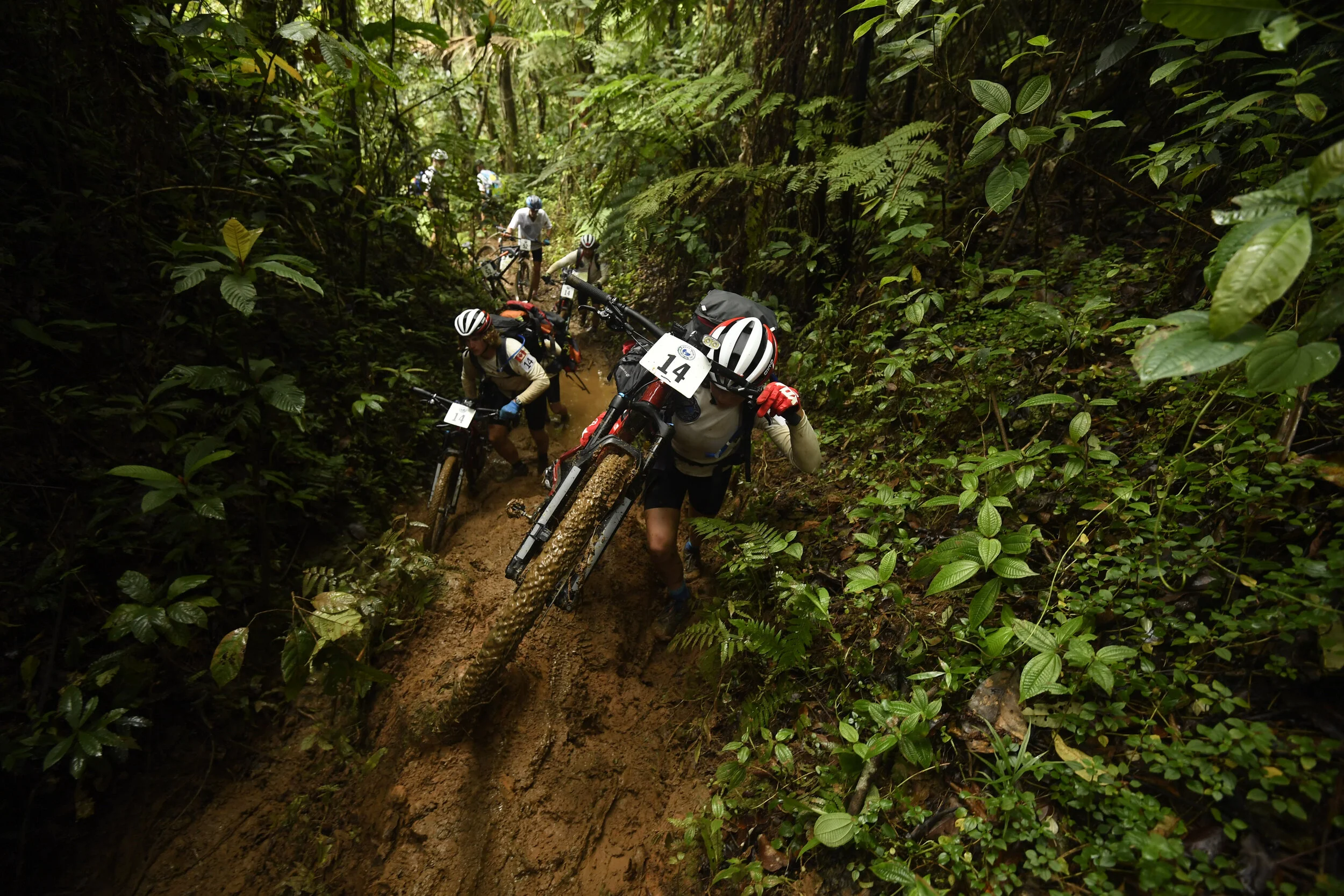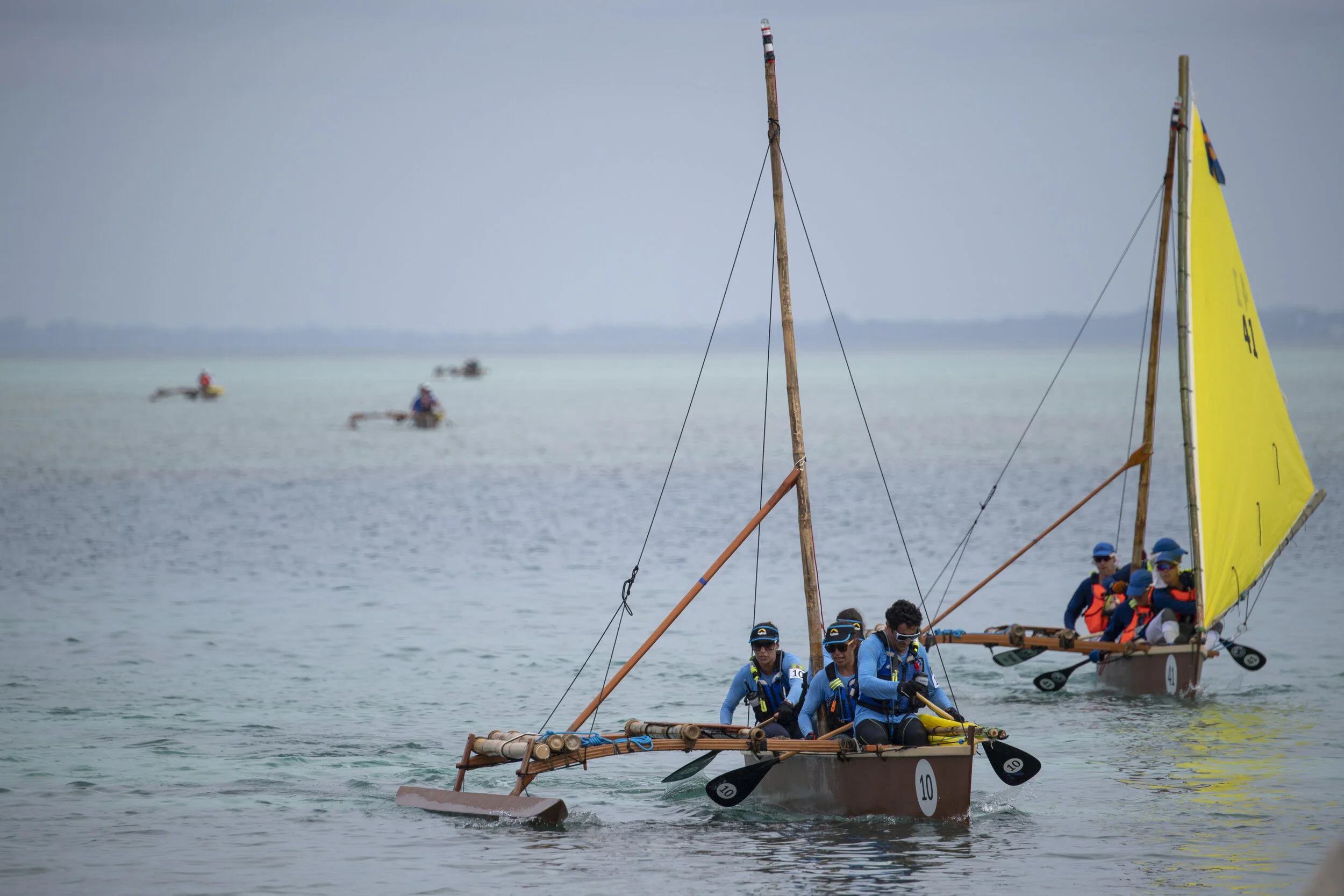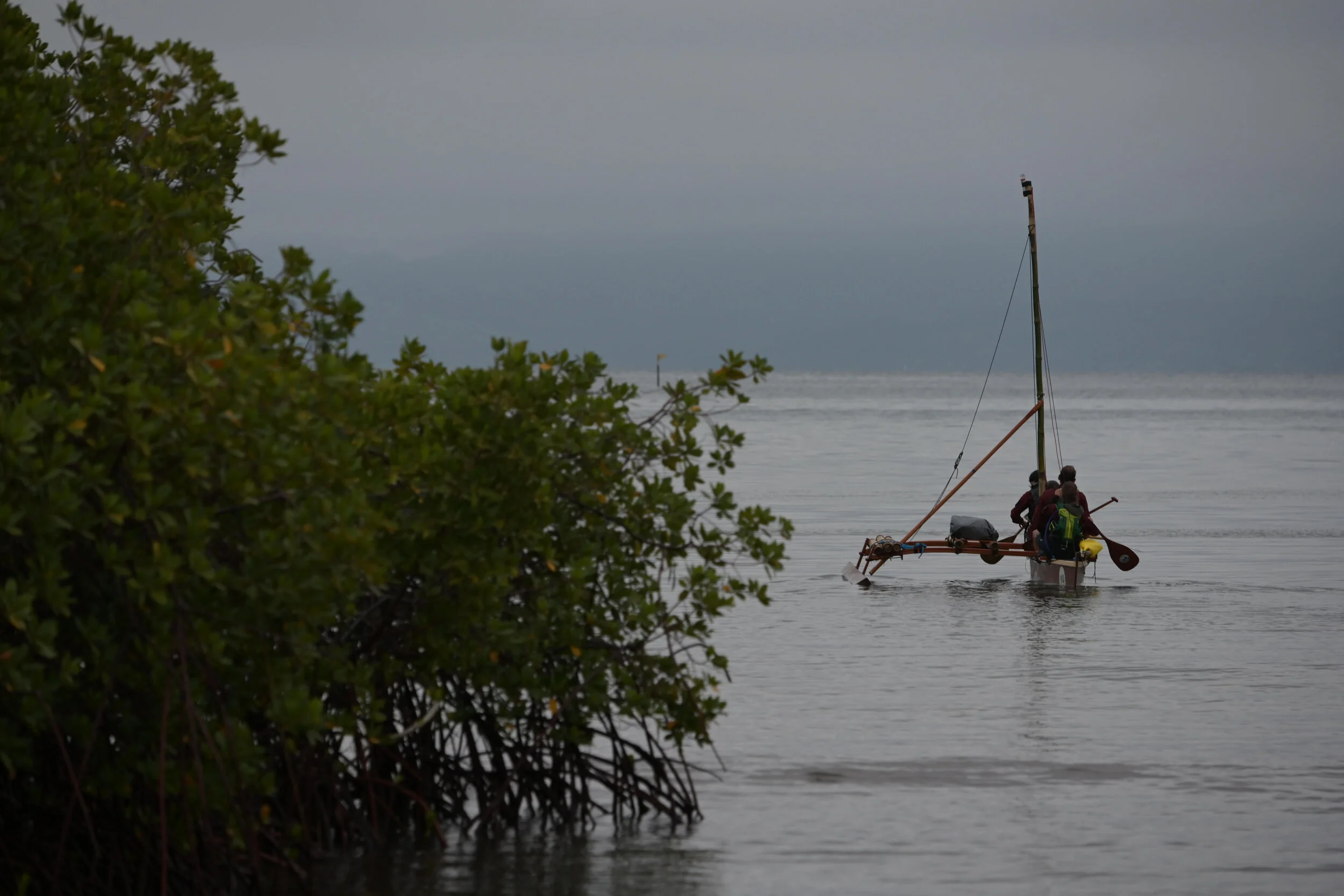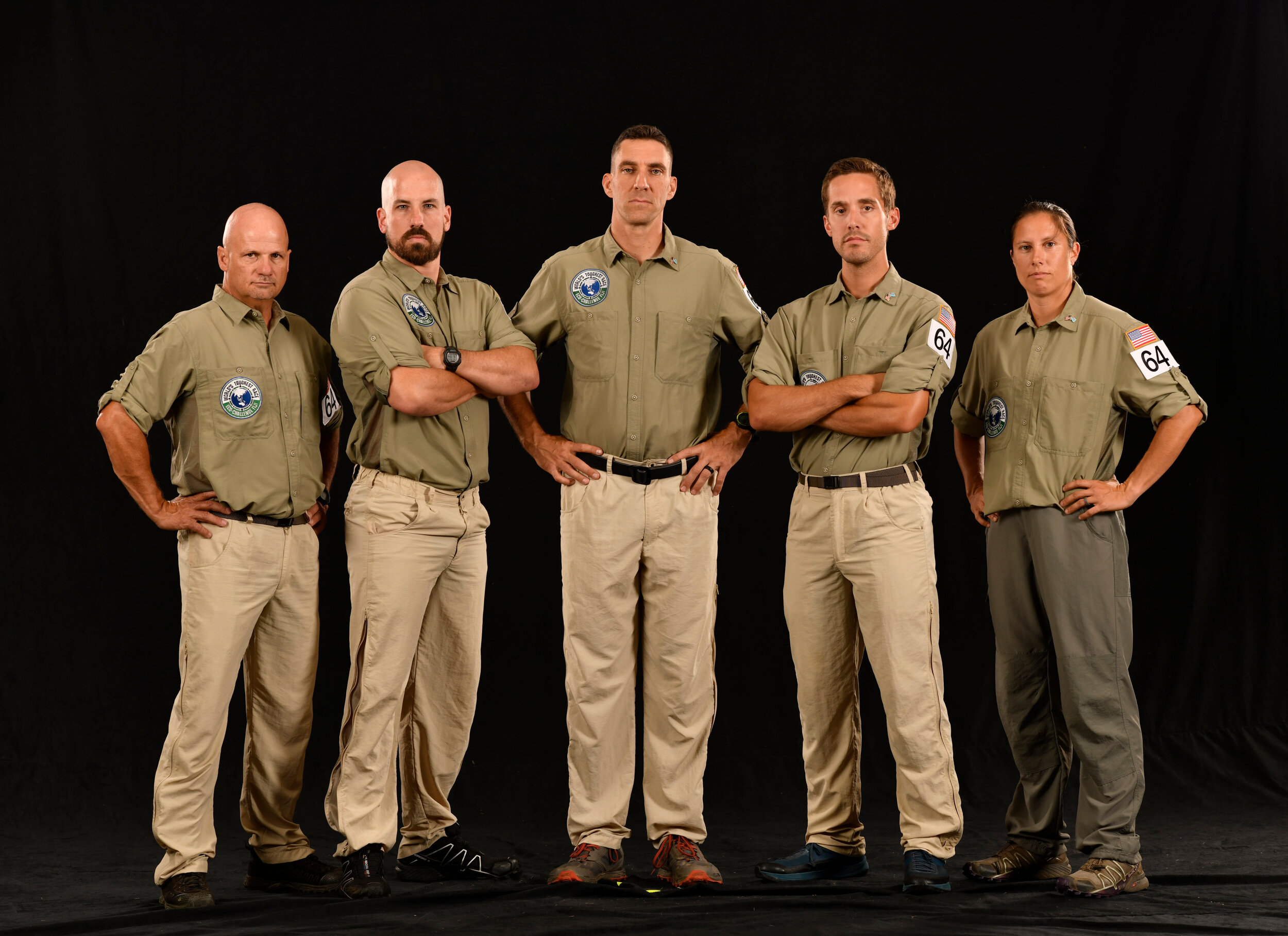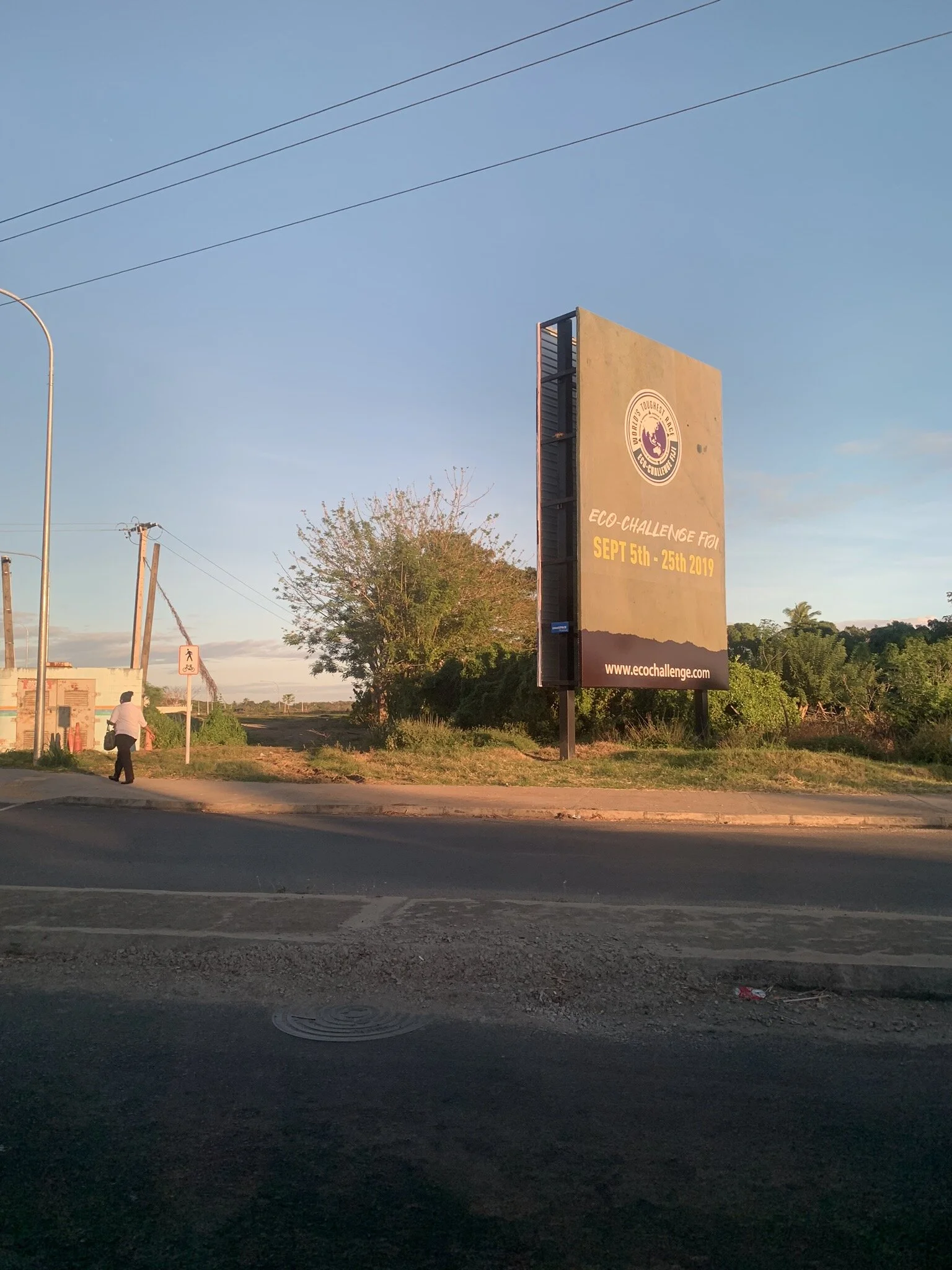So has 2020 really been that bad? Well, I can tell you it's to the point that having an upbeat attitude or even thinking that the pandemic is not so bad is seen as traitorous by many. It’s hard to be balanced on the issue. Instead of the caricature of an angel and devil on my shoulders arguing each of their cases, it is a different scene for me. I am tasked with the celestial role, met instead by an imp on each shoulder: shame for attempting positivity when the year has been so bad for others and guilt that the truly bad things happening to me haven't yet crushed me. Maybe it's not COVID that has made me feel socially isolated--perhaps it is that positivity is no longer culturally en vogue.
Read MoreEco-Challenge Fiji never promised to be an adventure race. Its claim was “The World’s Toughest Race”. Despite the lack of navigational challenges and jungle whacking (which was anticipated to be the hardest part of the race), Eco-Challenge Fiji was still the hardest race the members of Team US Military had ever done. The biking was tough, with incredible elevation gains and losses, and the weather added to the suck factor. This course tested the limits of racers’ mental capacity and their will to finish. Traveling across and along rocky rivers was tedious and broke some of the hardest people down. Continually slipping on rocks and banging up shins and feet tested the bounds of human fortitude and willpower.
Read MoreSpangler’s wife Kate was there as well. While her eyes showed concern for what condition he might have put himself in to get there, she was smiling as brightly as the sun with pride in what he had accomplished. As Kate’s husband saw her, a relieved smile appeared on his face; her presence was easing. She embodied the respite he had been so far from for eleven grueling days: home. The two embraced in silent glances, reunited in the midst of the happy chaos of finishing. The team popped champagne bottles and celebrated the end of their epic onstage.
Read MoreSpangler and Joshua went on ahead while Jesse and Caitlin wrestled with her headlamp that was no longer working. Caitlin had been having a hell of a time with gear issues—she lost her odometer on the hellacious mud climb, lost a bike glove that doubled as her paddling gloves, lost her red blinking rear bike light, lost her spare headlight after attempting to use the red blinker feature for her rear bike light, shorted out both of her bike front light batteries in the rain, lost her flashlight to the team’s Fijian porter (she forgot to get it back from him), and bent her derailleur. She was down to her last light. After a few minutes, the two abandoned the attempt to fix it and just rode together using Spangler’s light. Fortunately, the team would no longer need lights for the rest of the race.
Read MoreFueled by a sudden energy to get the hell off the incline, Caitlin scampered up to where Joshua was and started free climbing the rock face. She thought, “Maybe if I can get on top of the rock, I can see where we are…” Joshua gave her a boost and a stiff warning about the brittle rock, and she climbed about twenty feet up. Right there in front of her was the ROAD!!! “THE ROAD!!!" Caitlin yelled it loudly over and over so that her teammates could share her relief and then she collapsed on it. “Guys get up here!! We made it!!" She had never been so relieved. The team had been right under the road for twenty minutes and had no idea it was so close.
Read MoreThe military team continued up the river as daylight began painting the sky. The section was grueling. The embattled racers were constantly slipping and banging their shins on the rocks that littered the river and the narrow banks along its side. The rocks ranged in size from the size of a baby’s head to the size of a car. When traveling along the river, they were unavoidable. All were wet and slippery, and falling in that environment could have heavy consequences. To make matters worse, an underestimation of the number of spare batteries to bring for the stage left two of the team members without light. Leaping across wet rocks--sometimes as much as six feet above the ground--by moonlight in the middle of the Fijian jungle would be one of numerous truly unique Eco-Challenge Fiji experiences thrust upon the members of Team US Military.
Read MoreThere were about fifteen people in the home staring at Caitlin and Joshua as they laid down. After agreeing on one hour of sleep, Caitlin set the alarm on the watch. Caitlin, too weary and out of it to care, passed out and vaguely remember someone putting a blanket on her. Joshua tried not to laugh at the severely awkward circumstances in which he currently found himself--that of falling asleep to a hovering audience of women and children. Partly loopy from his lack of sleep, he stifled the giggles as best as he could and instead made a game of pretending to fall asleep peacefully, even though he was still wide awake at the thought of the strangers around him watching his every chest rise and fall. His thoughts before he finally gave into sleep were, “Where else would this craziness happen?”
Read MoreThe mud was so bad the wheels would not roll up OR down the hills. The mud was just caking onto the wheels, adding 40 pounds of weight and preventing any rolling. Joshua, struggling to push his bike downhill, watched as his rear wheel--covered in mud--ripped a saucer-sized rock from the ground as it rolled up. The glue-like mud did not let go of the five pound rock until it rolled into the bike frame, which was struggling to shed the massive buildup of mud, gravel, and other debris from the tires as they roll-skidded along the road.
Read MoreAfter a very wet and cold night on the bike they blazed into Camp 2 at 0400. Hot soup and a dry camp was looking really good to them now. As they started searching for their camp among all the tarps and tents, they could not find their own. After a while, Joshua finally found a volunteer to point out where the camp was set up. The volunteer pointed to six bins covered by a sopping wet tarp on the ground with Kevin’s tent next to it. Holy shit. Kevin had not set up their camp yet. Joshua immediately went to Kevin’s tent. “Kevin, what’s going on!?" The response the racers heard from their TAC inside the tent was, “Shit.”
Read MoreThe water inside the canyon was pretty intense, and since nobody could not touch the bottom, teams ended up pulling themselves along the edge of the canyon in the water. Backpacks were mostly left on, and used as makeshift lifejackets. Although this provided some buoyancy, it was the race’s first test of teams’ ability to waterproof their gear. Team US Military’s critical gear was already beginning to become waterlogged, including some first aid supplies and food. This would continue to be an issue throughout the race.
Read MoreAs they made their way to the mainland, Jesse began to question whether the race’s difficulty was already beginning to take its toll on him when he began to see things in the Pacific waters. When he found the bravery to ask his teammates if they were seeing what he was--small green flickers beneath the water every time his paddle sunk in--he realized he was not yet hallucinating. With each paddle stroke, the ocean was exploding with lime bluish-green sparkles. Bioluminescent plankton were illuminating themselves due to the mechanical stress of the water around them being disturbed by the paddles. Chased by a stream of natural fireworks , the team glided across the Pacific Ocean atop their Camakau. It would be an unforgettable experience for the members of Team US Military.
Read MoreTeam US Military, who had three proficient navigators, spent a few minutes studying the map. The next CP looked difficult, and they were trying to decide how to attack it. The villagers indicated the right direction where there was a trail down the way. They took the trail and sure enough, glow sticks were lighting the entrance to the attack point of the CP. Team members were a little put off by the all but neon signs indicating the way, but the navigation would not prove as easy in the subsequent stages of the race.
Read MoreIn disbelief, Team US Military also continued to paddle while assessing the damage. Their Camakau was not immediately taking on water as the gash was above the water line, but it would not survive the ocean once the team got there. Joshua made a quick decision, “Guys, in the 2002 Eco-Challenge Fiji, Team Playboy Extreme fixed their boat with wood and nails. We are going to pull over and ask the locals for the supplies before we get on the ocean." Caitlin considered the idea. This was the only thing to do if the boat was going to make it the twenty-four hours they would be on the water, so they paddled on until not long later they saw hundreds of local Fijians lining the riverbank next to their village, cheering on the competitors.
Read MoreAt the ceremonial start, country flags surrounded a stage in a semi-circular fashion. All the cameras were in place with drones and helicopters flying over. It was spectacular. Teams quickly learned the race was divided into five stages (Ocean, Jungle, River, Highlands, Island), with racers capturing an iconic medallion at each stage that would serve as the pass that allowed them on to the next stage. In between stages were camps where Team Assistant Crews (TACs) would set up team tents and have hot food waiting. Teams were required by the rules to spend a minimum of ninety minutes at each camp to allow for interviews if required. Additionally, teams had a sleep card rule that mandated they take a total of five sleeps of three hours each at Check Points (CPs) or camps of their choosing along the way. It was another element of strategy to consider during the race. The members of Team US Military were excited and ready to go.
Read MoreCompetitors were given a safety brief and told that the Eco-Challenge Fiji medical team could pull competitors off of the course if they felt the athletes were endangering ourselves. Eco-Challenge Fiji medical director Dr. Joe Rowles mentioned some diseases that may preclude us from continuing on--Dengue fever being one of them. It was at that point that Spangler, the emergency room physician on Team US Military, informed his teammates that he would let them know if anyone on the team needed to get the Eco-Challenge Fiji medical team involved. “You only get fever and chills from Dengue fever, and there is nothing you can do about it. You usually don’t die from it so we are continuing the race if anyone gets it.” His teammates knew where Spangler stood about finishing the race, and they were all okay with it.
Read MoreInstant panic erupted on the group chat. Advice and contingency plans were being thrown around to mitigate the team’s first crisis of many to come during the race. They arrived at the Pullman Resort in Nadi with all gear in tow sans Spangler’s. Team US Military’s initial excitement had been somewhat tamed by the missing gear debacle. As they reunited with adventure racing friends at the hotel, Spangler worked with the Eco-Challenge Fiji competitor relations team and Fiji Airways to try and locate his gear. After failed attempts to reach Fiji Airways all day, the Eco-Challenge Fiji social media manager sent a private tweet to the airline about the issue. Instantly, a response came from Fiji Airways, and the team soon learned that the gear never left SFO…
Read MoreAfter getting out of high school having watched that whole thing unfold for the past six years, then moving on to collegiate running and in turn graduating from college—during which time the Eco Challenge ended as Mark Burnett moved on to create Survivor—I thought, “Oh, it’s never going to happen again.” So throughout my adventure racing career after college, I had given up hope that the Eco Challenge would ever be a possibility for me. When I heard it was announced last year that there would be an Eco Challenge—the very thing I had yearned for in my youth—I dropped everything. The race a once-in-a-lifetime opportunity and you just cannot pass those up. Ever. Period.
Read More700 hours of exercise this year alone. That's nearly a continuous month--night and day. None of that mentions the eight year of competitive distance running before that. Nearly half of my life, I've been heavily involved in endurance sports. It is as much a piece of me as my name, as my hair color, as my family. Many might dismiss it as a hobby or liken it to a passing interest, and even close relatives and friends suggested that my love for the sport was the source of my relationship problems. I regret I came to believe them and for two years I abandoned the sport. It was grossly ignorant.
Read More








